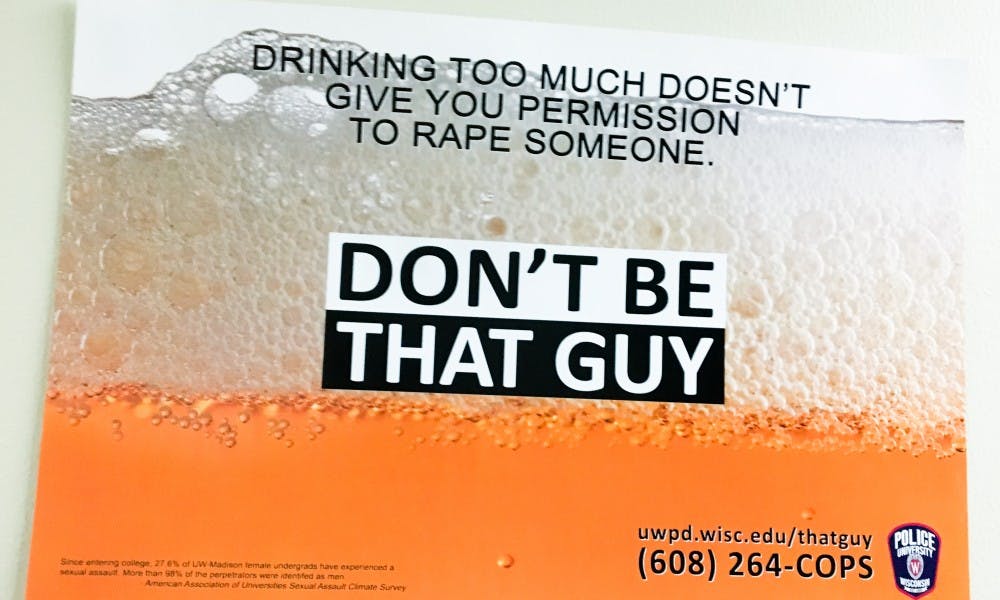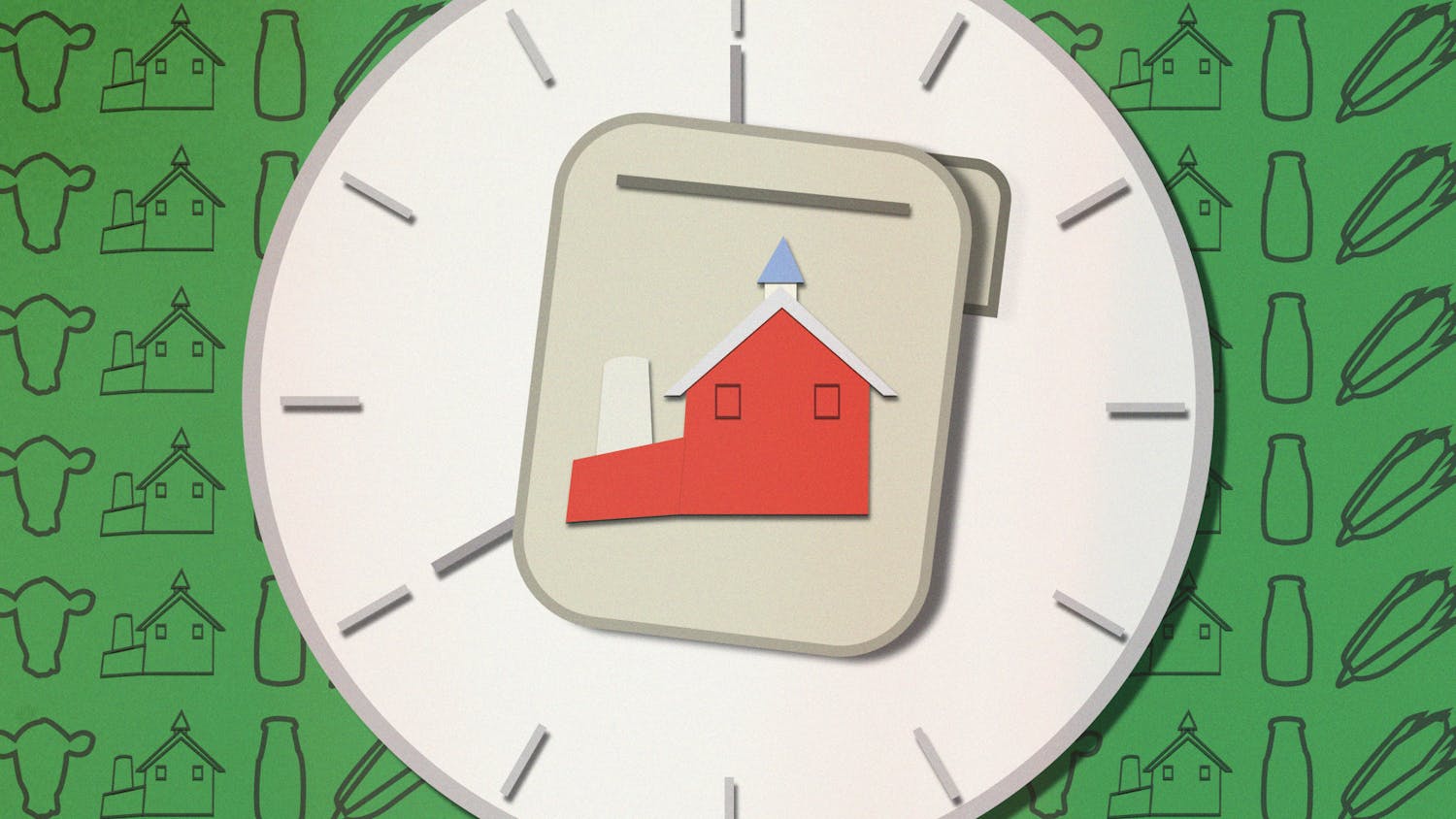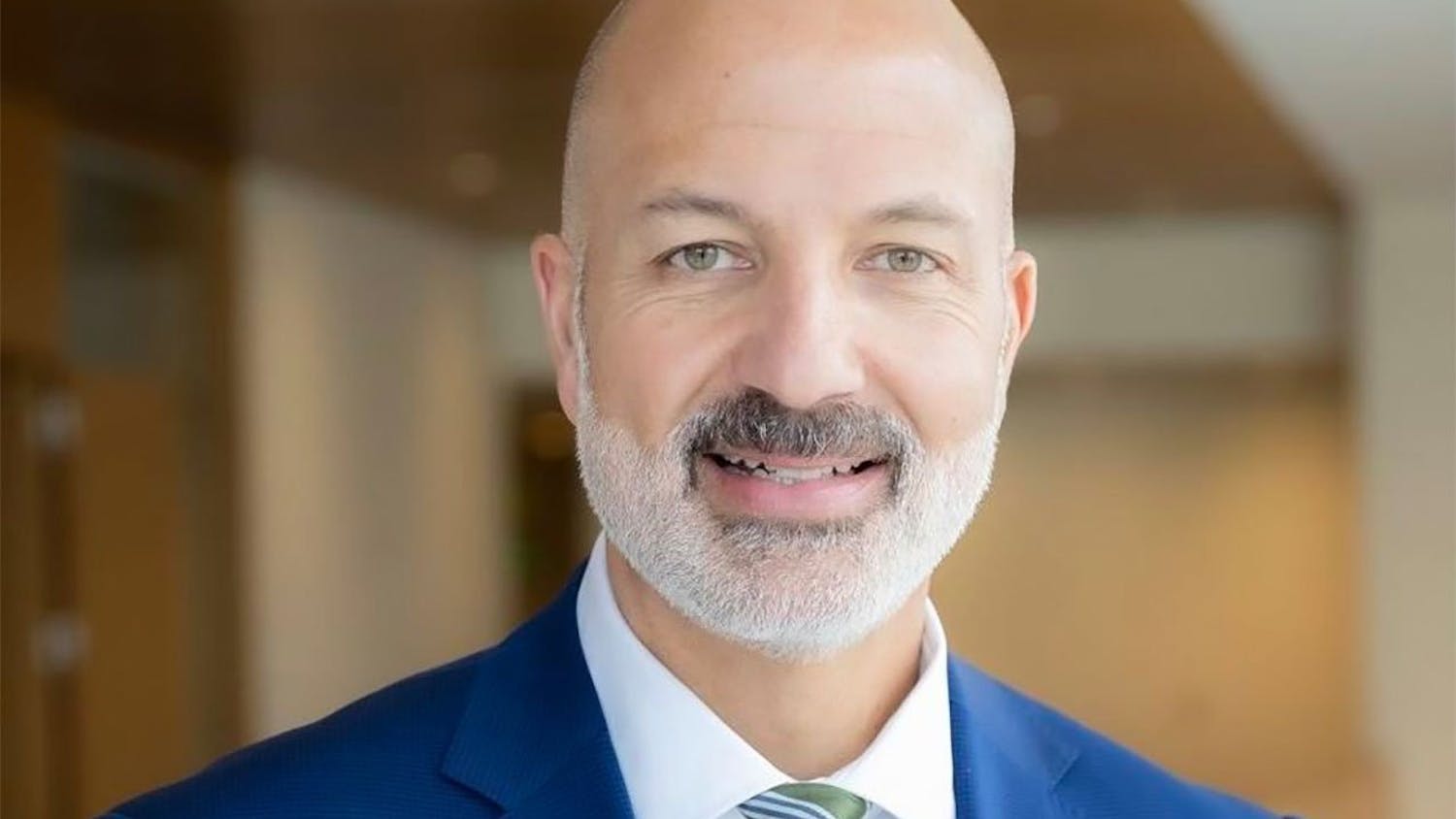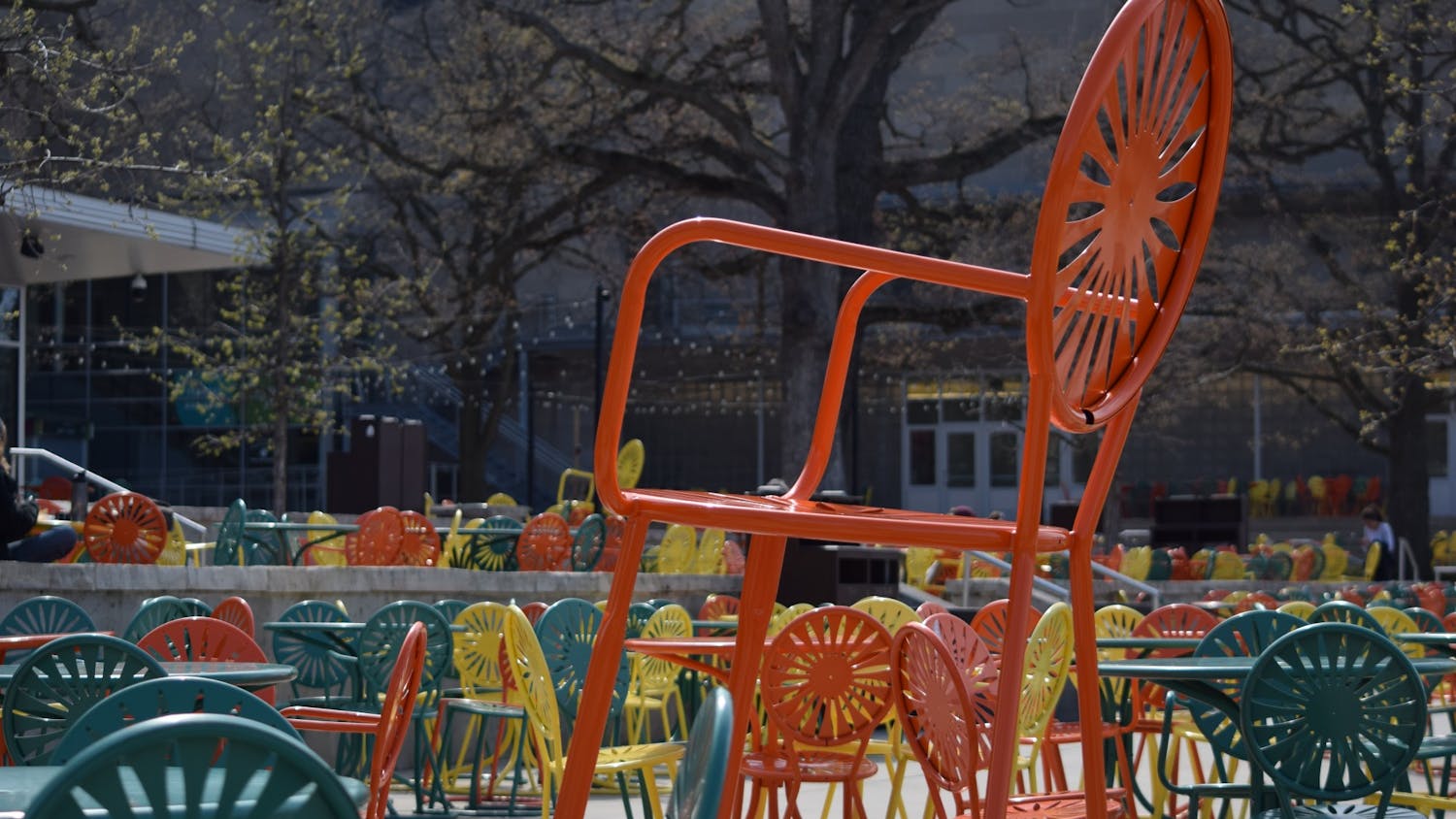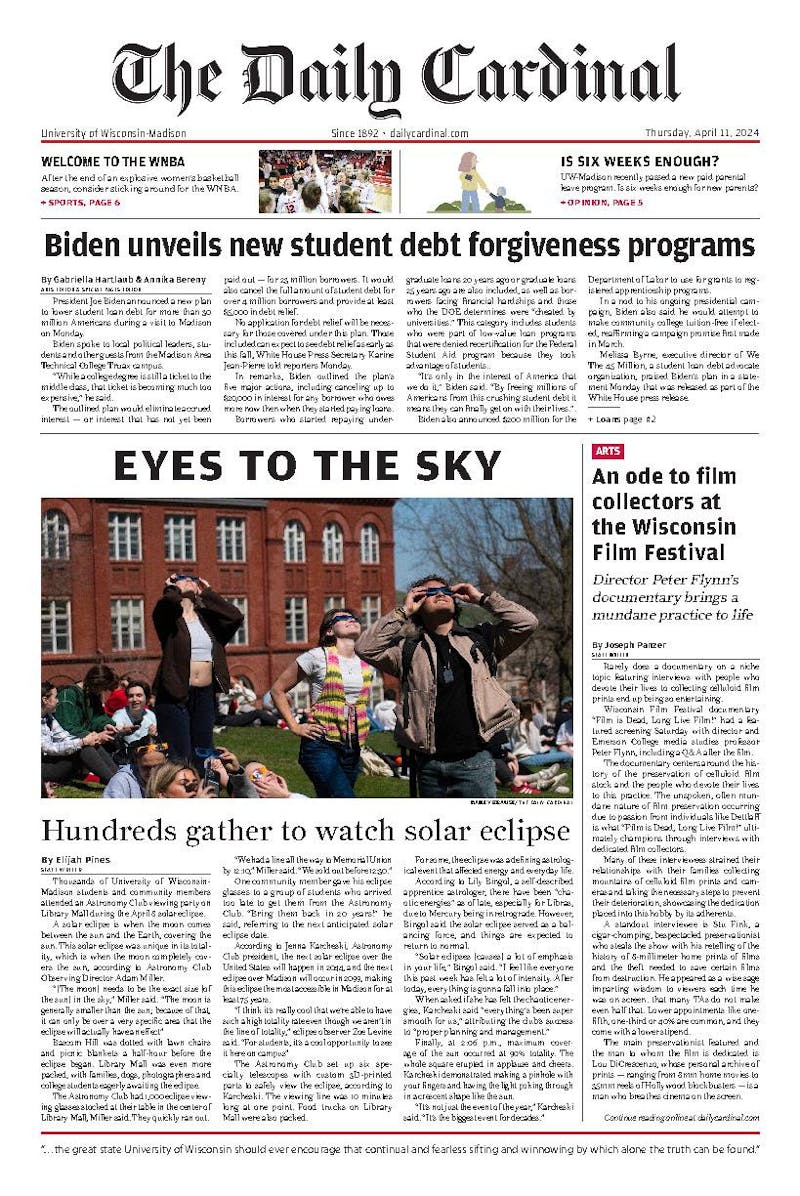Although the statistical majority of perpetrators are men, anyone can be a survivor of sexual assault. On campus, addressing survivors holding identities other than straight women is complex.
The 2015 UW-Madison AAU Campus Climate Survey revealed 16 percent of non-heterosexual males and 43 percent of non-heterosexual females experienced sexual misconduct and/or assault during their time on campus. Transgender and gender non-binary people were not accounted for due to low numbers. Though the chance of being raped is higher for individuals holding one of these identities, the odds of seeing preventative campaigns and non-heteronormative dialogue is low.
The UW-Madison Police Department launched the “Don’t Be That Guy” campaign in 2015, which targeted male perpetrators with heteronormative imagery. In one image a woman glances at the camera in distress, a man’s arm around her, with the photo captioned, “Getting drunk doesn’t give you permission to take advantage of someone.” Another advertisement features a woman, passed out in bed on a couch, with the words “Consent is clearly yes—not the absence of no.”
According to UWPD spokesperson Marc Lovicott, the campaign was based off the recent Campus Climate survey, reporting 98 percent of perpetrators are male.
Lovicott said UWPD worked with the LGBT Campus Center on this initiative and the department felt the Center’s campaigns were sufficient for other types of sexual assault prevention tactics.
At University Health Services, staff work to provide wide-ranging prevention and care.
Last year, this led to an additional requirement for all incoming students. The Wise workshops are the Tonight program’s in-person component, with topics ranging from dating, sex, LGBT specific topics and coping strategies for survivors of sexual assault.
Within UHS, mental health services are implementing an LGBT-specific counselor as well.
These changes, UHS End Violence on Campus Director Carmen Juniper Neimeko said, aim to go deeper than Tonight and provide a “more trauma-informed and trauma-sensitive approach.”
Aside from these changes, however, further steps are unclear.
For UWPD, the “Don’t Be That Guy” campaign will remain unchanged. Other initiatives such as the “Tell Us” campaign, Lovicott explained, feature male and female offenders, which the department sees as inclusive.
Juniper Neimeko, on the other hand, said addressing the issue of inclusion while also focusing on the statistical main source of the problem is multifaceted.
“Most perpetrators are gender-conforming, are cis[gender]-men, are straight men, who have access to sex and who perpetuate, both against other men and women and that doesn’t go away,” Juniper Neimeko said. “So doing targeted interventions that address gender in a gender binary might not be super inclusive, but it might address a reality.”
“I hear people when they say, ‘that doesn’t feel like I got represented.’ I hear you,” Juniper Neimeko said.
In the program utilized before Tonight in the late 2000s, one of the scenarios involved included a male-on-male assault. This backfired, according to Juniper Neimeko, resulting in greater homophobia from straight men who viewed the program, which at the time came in male and female viewing formats.
“So what does that mean, to be inclusive when it causes harm?” Juniper Neimeko said.
Nevertheless, changes have been implemented to open up the Tonight program, re-recording voice-overs to “remove the gender binary,” as Juniper Neimeko explained, and working with students in an LBGT capstone class to re-evaluate the program’s effectiveness. They found that many grapple with the desire to be represented and the fear of that action only reinforcing LGBT stereotypes in non-LGBT viewers.
Juniper Neimeko said a lot of work still needs to be done.
“When we

